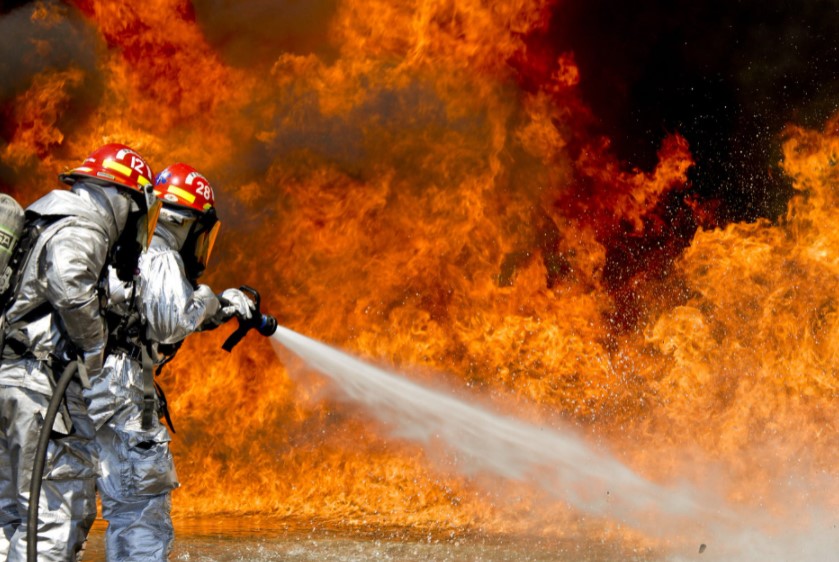Imagine living in a home that had indoor air quality issues? Initially, the difference between pure and polluted air will not be easy to catch; however, someone will know there is an issue when the coughing and wheezing begins. When purchasing a home, the air quality must be void of pollutants and under control to help reduce the risk of health problems down the line. Dust and carbon monoxide can cause an allergy and asthma flare-up, so the person must know and understand what to look out for before moving.
What Kind of Weather Causes Respiratory Flare-ups?
Hot
Having respiratory issues is no joke, and weather plays a significant role in this. Hot and humid weather causes emergencies for asthma, chronic obstructive pulmonary disease (COPD), and respiratory tract infections due to airway inflammation. Though people with asthma already have inflamed airways, humidity causes constriction in the airway. Air pollution is also a factor because of the sudden increase in ozone concentrations during the summer.
Cold
Air that is cold and dry can also cause difficulties for people with lung disease. The dry air disturbs the airways and causes the person to cough and struggle to breathe, leading them to the emergency room.
Combatting this issue
There are several steps someone can take to reduce the probability of the weather making them go to the hospital.
-Watch weather forecasts
-Keep air conditioning close
-Wear protective gear
-Bring medication everywhere
What Should Someone Ask a Real Estate Agent About Air Quality?
Before purchasing a home, someone must consider the home’s air quality for their safety and family. If someone sees dust latching onto the vent ducts in the home or the air smells unpleasant, these could be signs of bad indoor air quality.
Is there mold present in the home?
Someone may not see the mold; however, the person can smell it. Most mold is caused by water damage to a building, and it exists in many homes. It is not dangerous in small amounts, but it will not be wise to watch the mold grow.
Is asbestos and lead present anywhere in this home?
Lead and asbestos are not harmful as long as someone keeps an eye out for them. The homeowner should often check to ensure the asbestos and lead have not changed their original state.
Has there been an air quality inspection recently?
The real estate agent will not be an expert in indoor air quality; however, they should be able to get in contact with someone who does know. Before moving into any property, an evaluation needs to be done to avoid potential problems.
What Are the Warning Signs of Bad Indoor Air Quality?
Besides coughing and wheezing, many other signs show that the air in a building is contaminated.
-Dry and Irritated Skin
-Respiratory Problems
-Nausea
-Headache
-Constantly Sick
If someone is experiencing fatigue or dizziness, this could be a sign of loose carbon monoxide. After feeling an intense urge to sleep, members of the household need to leave home quickly to have a professional check for a leak. If this issue is left unnoticed, the heart and lungs will be put under much pressure until the body suffocates. These respiratory issues are even present in children.
How to Mitigate the Harm From Poor Indoor Air Quality?
Exercising
If someone is worried about the dangers of working out indoors and breathing in polluted air, buy an air purifier or an air filtration system. When someone is physically active, they breathe more air into the lungs and invite in more contaminants. Air purifiers work by clearing out toxins from the air. Buying this machine will help relieve respiratory issues, improve sleep, and neutralize the home’s smells.
If someone is completing an outdoor exercise, they should also be cautious of the weather and its impact. It could make the routine workout way harder than it needs to be.
Adding insulation
If an insulation job is old, this can cause problems with breathing, and not fixing the problem could cause water damage and pests. To make the home more comfortable and safe, get new insulation. Heat naturally travels from areas that are warm to colder areas. Insulation stops this from happening through the surfaces of a home, and it is beneficial for the summer and winter months when the weather is the worst.
Air quality is vital to maintain a healthy lifestyle, and someone should never forget that sometimes the air in someone’s home is more contaminated than outside air. After figuring out if the weather in the area the person wants to move to is suitable, they have to make sure that the air inside of the home is also. For someone who has problems breathing, there should be the best HEPA air purifier and protective gear present at all times.
